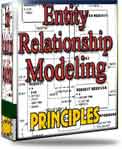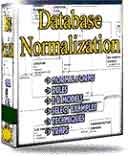 |
||
|
|
Oracle Import | Oracle Partitions | Oracle Scheduler | Oracle log files | Redefining Oracle Objects Oracle DBA : Common tasksWelcome to the Oracle DBA section of this siteIn this section, you will find a set of common tasks needed to be mastered and performed by any DBA. The articles are basic level, and some are graphic intensive, so you will need some network speed to read them. I recommend that you print each article for better reading experience. Use landscape orientation on your printer. The Oracle Database System from Oracle
Corporation is most likely the most widespread and popular Database
System in the world. It is increasing with a very high speed in Linux
environments, but is also gaining market shares in virtually all
environments.
and much more. So, here it is: DISCLAIMER: All programming examples within the articles are meant for illustration purposes only, and The Database Design Resource Center holds no warrant for correctness if used.
Return to Database Design home
|
Exclusive interviews with:
Free eBookSubscribe to my newsletter and get my ebook on Entity Relationship Modeling Principles as a free gift: What visitors say...
"I just stumbled accross your site looking for some normalization theory and I have to say it is fantastic.
Read more
Testimonials
I have been in the database field for 10+ years and I have never before come across such a useful site. Thank you for taking the time to put this site together." Mike, USA |
|
Theory & Practice DB Normalization Analysis Phase Database Keys DB Glossary Appl.Architecture Oracle DBA MySQL DBA SQL Server DBA Install Oracle Install SQL Server Proj.Management Oracle Constraint Programming Tips Database Normalization eBook: |
||
|
Copyright © www.databasedesign-resource.com /
All rights reserved. All information contained on this website is for informational purposes only. Disclaimer: www.databasedesign-resource.com does not warrant any company, product, service or any content contained herein. Return to top
The name Oracle is a trademark of Oracle Corporation. |
||